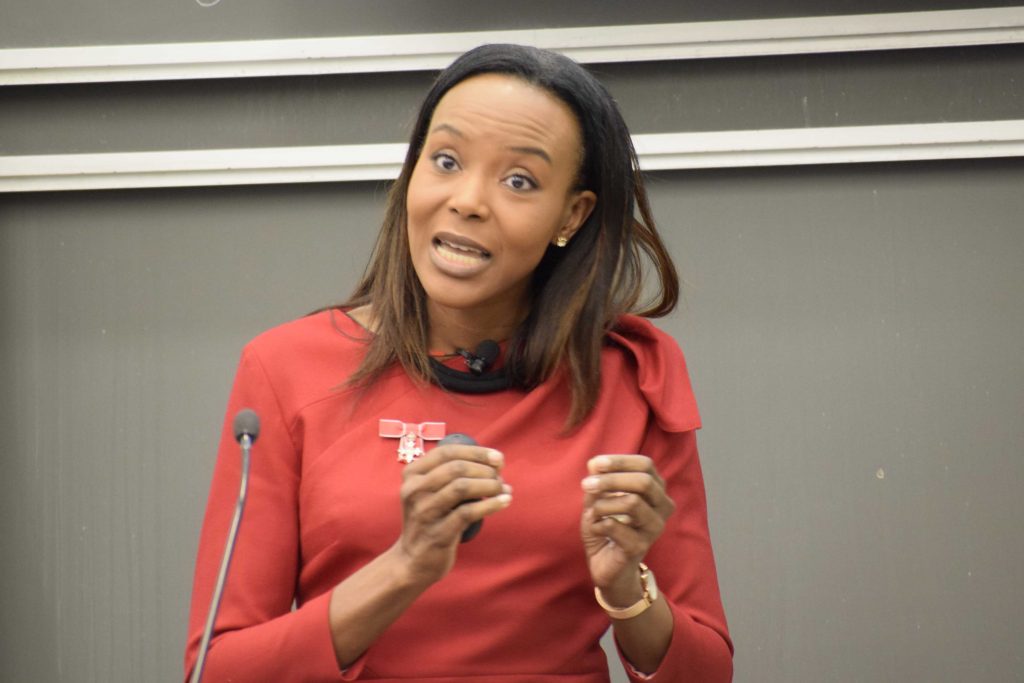When Funke Abimbola came to campus on November 4, her message was clear: Keep moving forward. Today, she speaks from her position as a multi-award-winning lawyer, business leader, public speaker, TV contributor, diversity leader, board member, and mother.
In fact, the Financial Times ranked her among the top 15 minority ethnic leaders and champions of women in business across the UK, US, Ireland, and Canada, and in 2017 she was awarded the Most Excellent Order of the British Empire (M.B.E.) by Queen Elizabeth II for services to diversity in the legal profession and to young people.
But this success did not come without a fight.
Abimbola was born in Nigeria and moved to the United Kingdom for school with her two younger siblings when she was eight years old. Although in later years she had broken from her parents’ mold by deciding to become a lawyer instead of a doctor, the legal industry provided unforeseen challenges of its own.
It wasn’t until Abimbola began applying to corporate law jobs that she realized the significant barriers ahead. After sending hundreds of resumes to law firms and various in-house opportunities, it became clear to Abimbola that her Nigerian name was holding her back. She was even told by a recruiter to forget about corporate law as a black woman. Instead of allowing this message to control her fate, Abimbola said, she took matters into her own hands: She picked up the phone, pitched her expertise, and created a powerful brand for herself.
Abimbola’s fight did not end there. When she became pregnant with her son, it was clear there was a massive penalty involved with taking maternity leave in the legal profession. With only two years of experience under her belt, Abimbola realized she “never got the memo” about waiting to have kids.
Again refusing to be complacent, she instead used the experience to shape her own career. She has since worked at various law firms, taken a year-long sabbatical to study at top universities, and moved in-house at two pharmaceutical companies, all while remaining a champion for diversity and inclusion.
Abimbola explains some of this on her website: “I have experienced both racial and gender-based discrimination in the workplace and was angry about this for many years. Instead of staying angry, I decided to do something about it! My aim is to level the playing field by empowering the next generation (and, indeed, others) to maximize their potential with a view to seeing an end to all forms of discrimination in the work place and in wider society. This challenge is huge but, to me, is worth pursuing and making sacrifices for.”
Before concluding her lecture, Abimbola left students with five tips for overcoming challenges of their own: Stay focused, stand out, keep learning, support others, and keep the faith. These tips allowed her to climb and move mountains, she said, urging her audience to do the same.


